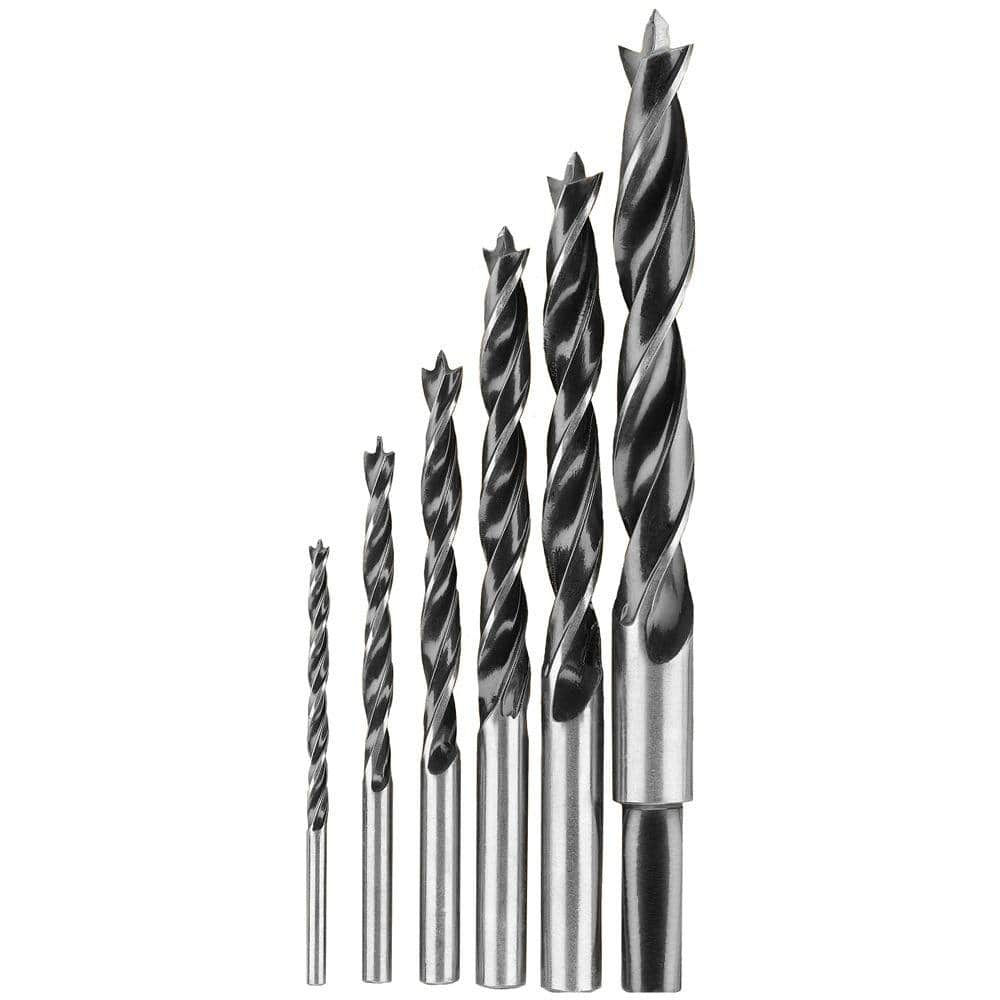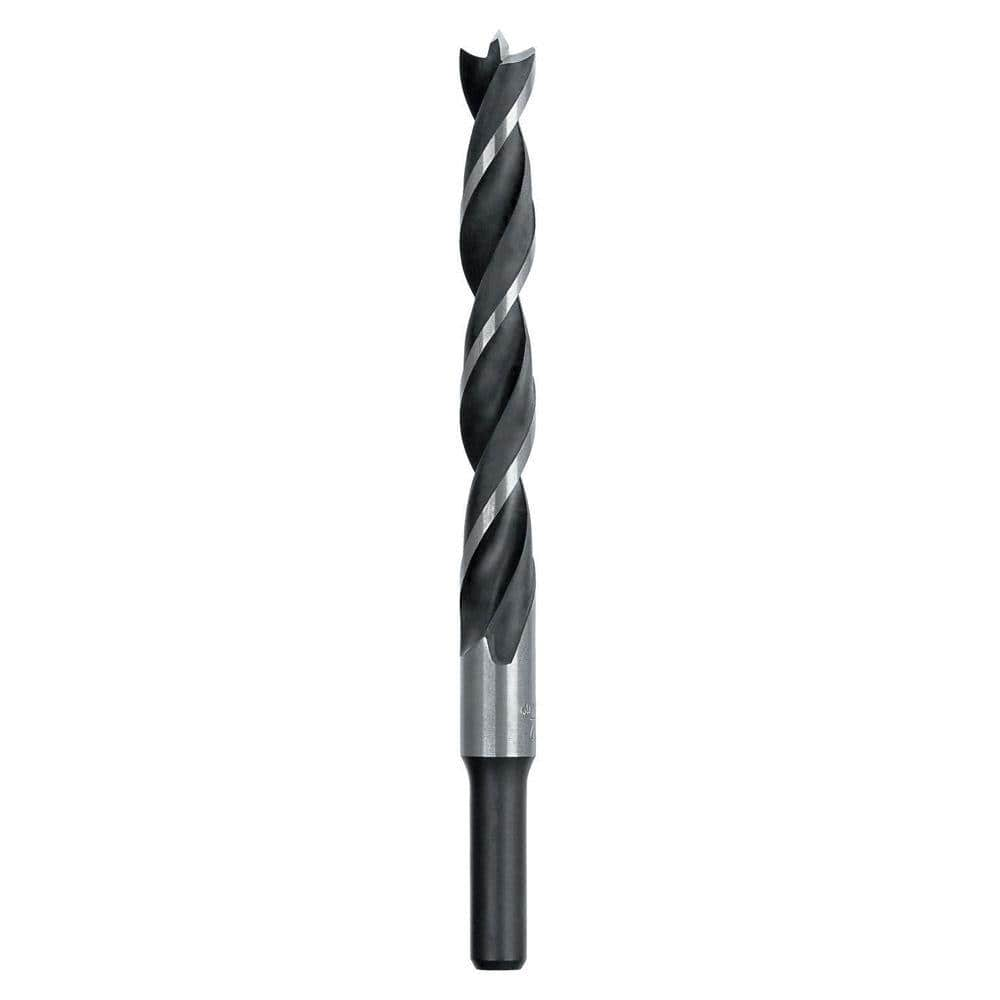Can brad point drill bits be used on metal? If you’re curious about whether these drill bits are suitable for metalwork, you’ve come to the right place! In this article, we’ll delve into the world of brad point drill bits and explore their capabilities when it comes to working with metal. So, let’s get started and uncover the answers you’ve been seeking!
When it comes to drilling holes in metal, the type of drill bit you use becomes crucial. Brad point drill bits are primarily designed for woodworking projects, where they excel at creating clean and precise holes in various types of wood. However, can they handle the tough demands of metal drilling? Let’s find out together!
Whether you’re a budding DIY enthusiast or an experienced metalworker, understanding the limitations and capabilities of your tools is essential. So, in the next sections, we’ll explore the factors that determine whether brad point drill bits can be effectively used on metal. Get ready to discover some fascinating insights!

Can Brad Point Drill Bits Be Used on Metal?
If you’re a DIY enthusiast or a professional woodworker, you’re probably familiar with brad point drill bits. They are a popular choice for drilling clean, precise holes in wood due to their sharp center point and spurs on the sides. However, you might be wondering if these drill bits can also be used on metal. In this article, we will explore whether brad point drill bits are suitable for metalworking projects, their limitations, and alternative options if you need to drill holes in metal.
Understanding Brad Point Drill Bits
Before we delve into the topic, let’s have a closer look at brad point drill bits. These bits are specifically designed for woodworking tasks and excel at drilling clean and accurate holes in various types of wood. They feature a sharp, pointed tip that helps to position and stabilize the bit on the surface, reducing the risk of it slipping or wandering off course. The outer edges of the tip also have two sharp spurs that create clean entry holes, minimizing tear-out and splintering.
Brad point bits are typically available in various diameters, allowing you to choose a size that suits your specific needs. They are commonly used in applications such as furniture making, cabinetry, and joinery. However, when it comes to drilling through metal, you may encounter some challenges.
The Limitations of Brad Point Drill Bits on Metal
While brad point drill bits are excellent for drilling wood, they are not the ideal choice for metalworking tasks. The design and features that make them so effective on wood can work against them when used on metal. The sharp point and spurs can struggle to penetrate hard metals like steel and aluminum, resulting in a slower and less efficient drilling process. The cutting edge of the bit is also optimized for wood fibers, which makes it less effective at removing metal shavings and maintaining cutting efficiency.
Furthermore, the long flutes on brad point bits are designed to remove wood chips more effectively. However, when used on metal, these flutes can become clogged with metal shavings, leading to increased heat and friction. This can cause the bit to overheat, dull more quickly, or even break under the increased strain. In summary, while brad point bits can technically be used on metal, they are not the most efficient or suitable option for such applications.
Alternative Options for Drilling Metal
If you need to drill holes in metal, there are several alternative options that are better suited for the task. Here are a few commonly used metal drill bits:
- HSS (High-Speed Steel) Drill Bits: These drill bits are made from a special type of steel that can withstand high temperatures generated during metal drilling. HSS bits are versatile and suitable for drilling various metals, including steel, aluminum, and brass.
- Cobalt Drill Bits: Cobalt bits are made from a blend of cobalt and high-speed steel, making them extremely durable and heat resistant. They are particularly effective for drilling through hardened metals.
- Carbide Tipped Drill Bits: Carbide tipped bits feature a hardened carbide tip that can drill through the toughest metals, including stainless steel and cast iron. They offer excellent performance and longevity.
These alternative options are specifically designed to handle the challenges of drilling through metal, offering better cutting efficiency, heat resistance, and durability. When working with metal, be sure to select the appropriate bit based on the type of metal and the desired hole size to achieve the best results.
Choosing the Right Drill Bit for the Job
When it comes to selecting a drill bit for your project, it’s crucial to consider the material you’re working with. While brad point drill bits are perfect for wood, using them on metal can be less than ideal. By opting for specialized metal drill bits, you can ensure more efficient and successful drilling experiences. Whether you choose HSS, cobalt, or carbide-tipped bits, make sure to match the bit’s specifications with the metal you’re working with. This will help you achieve clean and precise holes while prolonging the lifespan of your drill bits.
Tips for Drilling Metal
Drilling through metal requires some techniques and precautions to ensure successful results. Here are a few tips to keep in mind:
- Start with a small pilot hole to guide the larger bit and reduce the risk of the bit slipping.
- Use cutting oil or lubricant to cool down the bit, reduce friction, and extend its lifespan.
- Go slow and apply consistent pressure to prevent overheating and ensure a smooth drilling process.
- Secure the metal firmly to prevent movement or vibration that could damage the workpiece or cause the bit to wander.
- Wear personal protective equipment, including safety goggles and gloves, to protect yourself from metal chips and fragments.
By following these tips and using the appropriate drill bits, you can achieve professional-level drilling results on various metals.
Summary
In conclusion, while brad point drill bits excel in woodworking applications, they are not the best choice for drilling through metal. Their design, optimized for wood, can make the drilling process slower and less efficient on metal surfaces. Instead, opt for specialized metal drill bits such as HSS, cobalt, or carbide-tipped bits to achieve better results when working with metal. Be sure to consider the type of metal and the desired hole size to select the appropriate bit. Follow the tips for drilling metal to ensure successful and precise results. Remember, choosing the right drill bit for the job is essential for achieving clean, precise, and efficient holes in your projects.
Key Takeaways: Can Brad Point Drill Bits be Used on Metal?
- Brad point drill bits are primarily designed for woodworking.
- Using brad point drill bits on metal can cause dulling or breakage.
- For metal drilling, it is recommended to use twist or cobalt drill bits.
- Brad point drill bits have a sharp point for accurate drilling in wood.
- Using the wrong type of drill bit can result in poor performance and increased risk of injury.
Frequently Asked Questions
Welcome to our FAQ section, where we answer commonly asked questions about using brad point drill bits on metal. Whether you’re a beginner or an experienced DIYer, we’ve got you covered. Read on to learn more!
1. Can brad point drill bits be used to drill holes in metal?
Brad point drill bits are primarily designed for drilling clean and precise holes in wood. While they can be used on some types of metal, they are not the ideal choice for this task. Metal requires different types of drill bits that are specifically designed for its hardness and durability. Using brad point drill bits on metal may result in dulling or damaging the bit, as well as producing unsatisfactory results.
If you need to drill holes in metal, it is recommended to use drill bits made of materials such as high-speed steel (HSS) or cobalt. These drill bits are specifically designed to withstand the hardness of metal and provide efficient drilling performance. Using the right tool for the job will give you better results and prolong the lifespan of your drill bits.
2. Which materials are suitable for drilling with brad point drill bits?
Brad point drill bits are excellent for drilling holes in various types of wood, making them a popular choice for woodworking projects. They work exceptionally well in softwoods, hardwoods, plywood, and even exotic woods. The sharp center point allows for precise positioning and minimizing the chances of the bit wandering.
In addition to wood, brad point drill bits can also be used for drilling plastic and other soft materials. Their design, with sharp spurs on the sides of the center point, helps create clean and accurate holes in these materials without causing excessive tear-out or chipping.
3. Are brad point drill bits suitable for drilling through metal sheets?
While brad point drill bits are not the best choice for drilling through metal sheets, they may work for thinner and softer metals, such as aluminum or brass. However, it’s important to note that these drill bits may not be the most effective option, as metal requires specialized drill bits to ensure clean and accurate holes without damaging the material or the drill bit.
If you need to drill through metal sheets, it is recommended to use drill bits specifically designed for metal, such as twist drill bits or step drill bits. These types of bits are better equipped to handle the hardness and thickness of metal, providing better results and reducing the likelihood of damaging your materials or tools.
4. Can brad point drill bits be used on stainless steel?
While brad point drill bits can technically be used on stainless steel, they are not the best choice for this task. Stainless steel is a hard and durable material that requires drill bits made of materials that can withstand its hardness, such as high-speed steel (HSS) or cobalt. Brad point drill bits, designed primarily for wood, may not be capable of drilling clean and efficient holes in stainless steel.
If you need to work with stainless steel, it is recommended to use drill bits specifically designed for metal. HSS or cobalt drill bits will provide better performance and durability, ensuring precise holes without damaging the drill bit or the material.
5. What are the alternatives to brad point drill bits for drilling metal?
If you need to drill holes in metal, there are several alternatives to brad point drill bits that are better suited for the task. Some commonly used drill bits for metal include twist drill bits, step drill bits, and cobalt drill bits.
Twist drill bits are versatile and can be used for drilling various metals. They have a spiral-shaped flute that helps remove metal shavings efficiently and prevent overheating of the drill bit. Step drill bits are excellent for drilling multiple hole sizes as they have a stepped design. Cobalt drill bits are specifically designed for drilling stainless steel and other hard metals, offering excellent performance and durability.

Summary
Brad point drill bits are not designed for use on metal due to their construction and shape. They work best on wood materials. Metal requires specialized drill bits made from materials like high-speed steel or cobalt. These metal drill bits have a sharper cutting edge and are more durable for drilling through metal surfaces. Remember to always use the proper drill bits for the material you are working with to ensure safe and effective drilling.
The post Can Brad Point Drill Bits Be Used On Metal? appeared first on The Habit of Woodworking.
source https://thehabitofwoodworking.com/2024/can-brad-point-drill-bits-be-used-on-metal/

No comments:
Post a Comment